What is Referral Traffic?
Referral traffic refers to visitors who arrive at your site after clicking on your link on another site. This type of traffic is valuable because it indicates that users are interested in your content, products, or services based on the recommendation of another website.
Referral traffic is one of the multiple traffic sources reported by Google Analytics. Google Analytics allows you to track referral traffic in detail, including the specific pages users land on and their behavior after arriving.
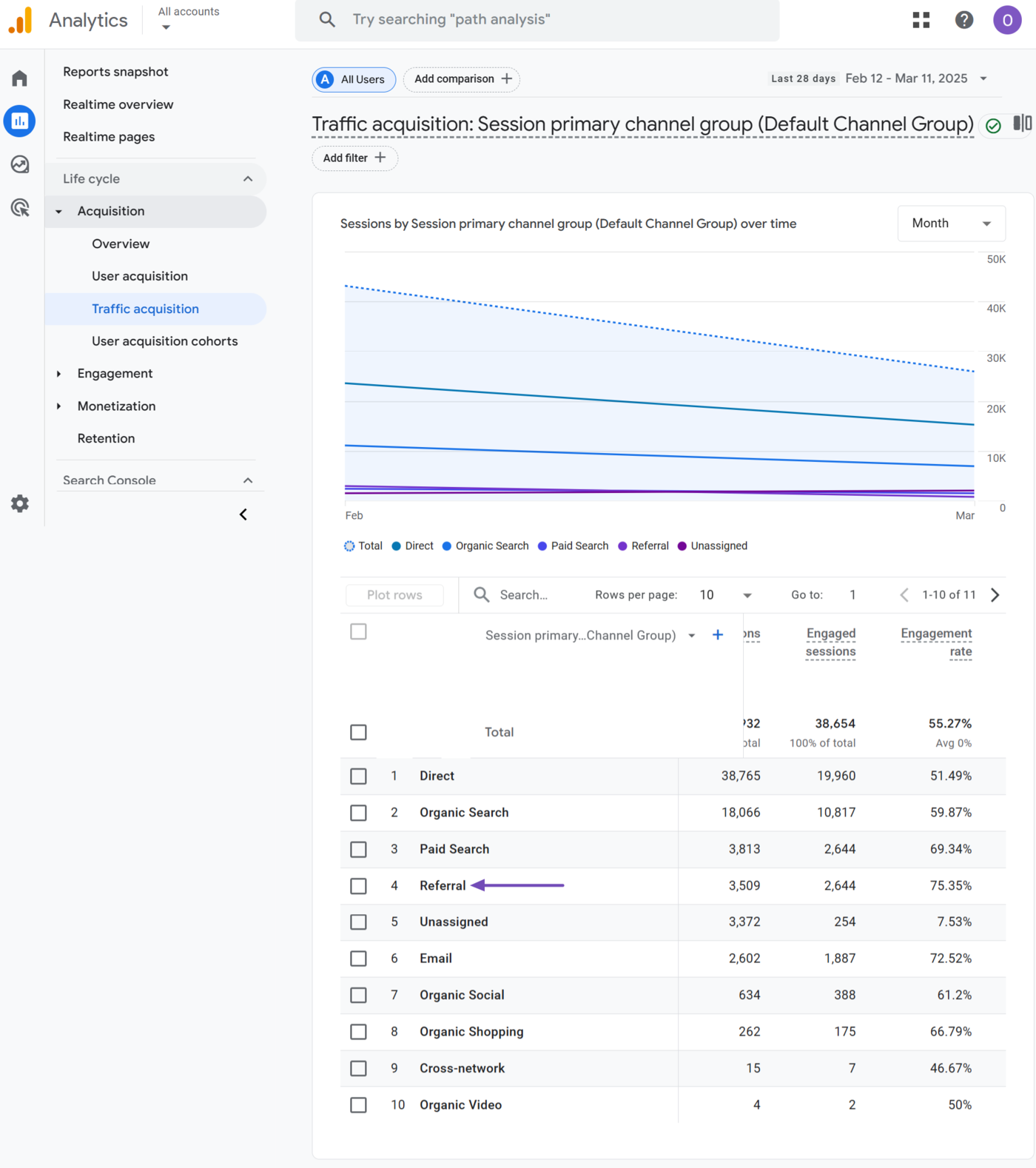
The site from which the traffic originates is called the “referrer.” Some analytic tools include social media and email traffic in their referral traffic report. However, Google Analytics reports social and email traffic separately from referral traffic.
How to Track Your Referral Traffic
You can track your referral traffic using Google Analytics. To get started, log into your Google Analytics account and click the Reports icon.
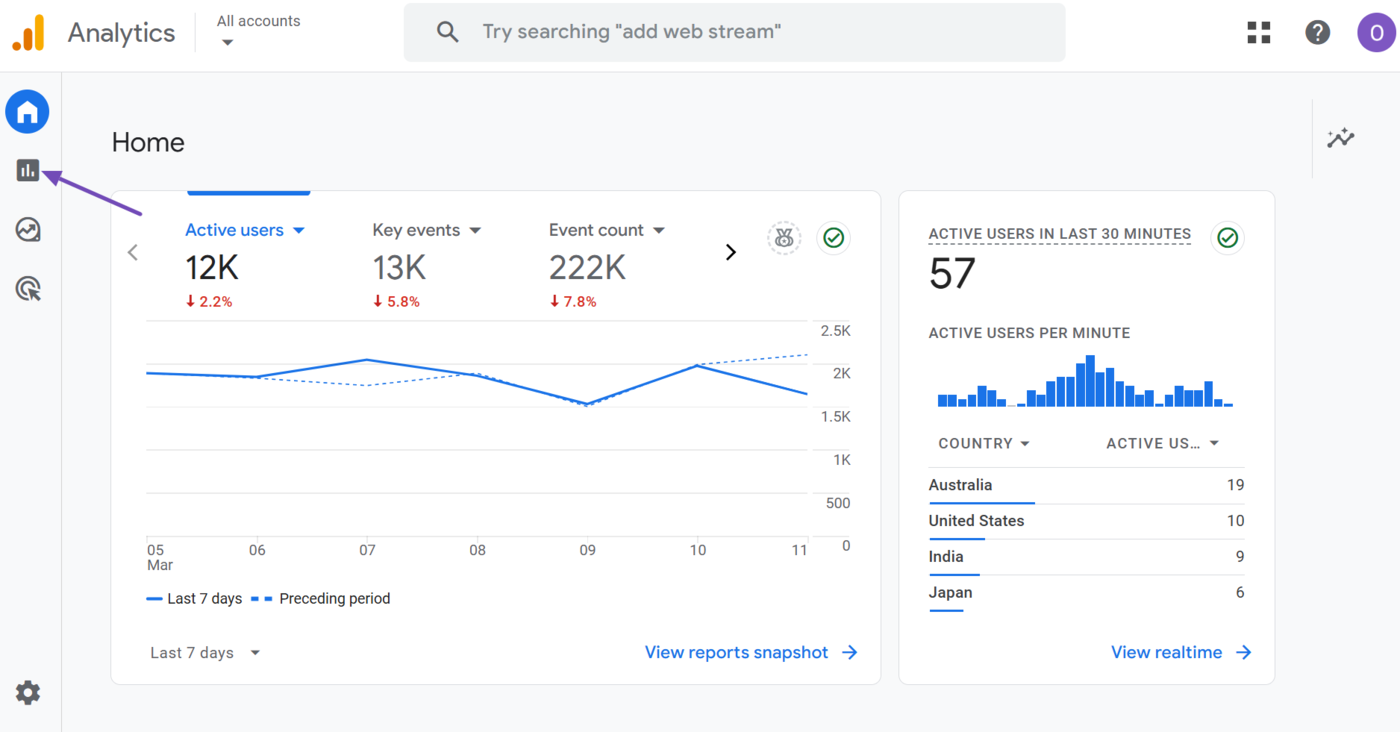
Then, navigate to Life cycle → Acquisition.
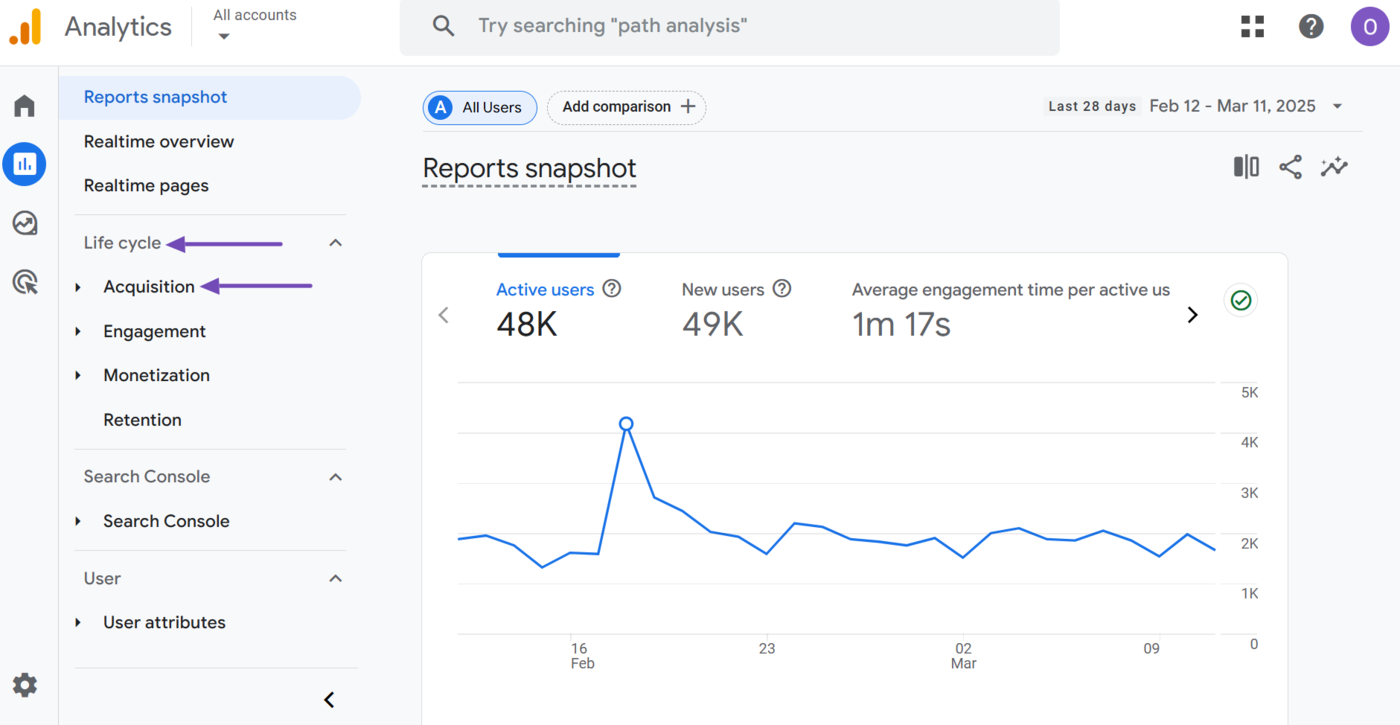
Once done, click Traffic acquisition, as shown below.
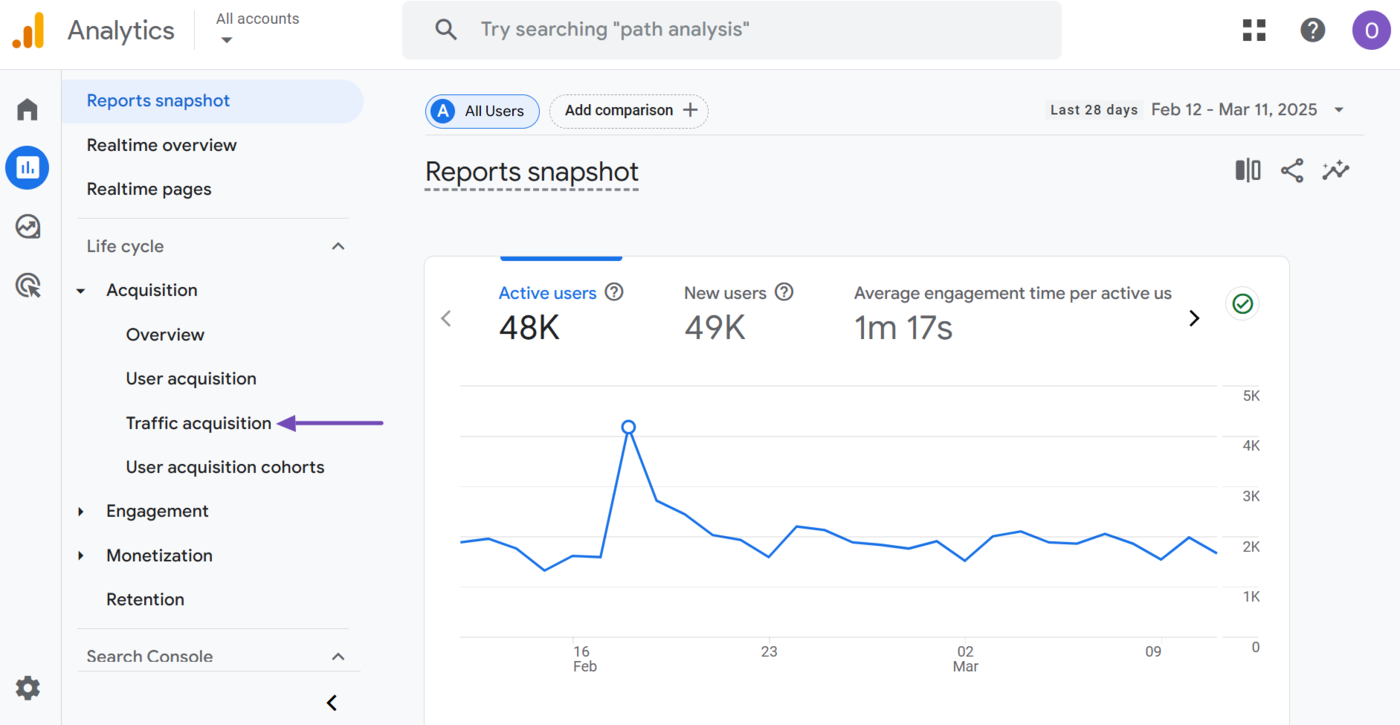
You will view your Referral traffic report, as shown below.
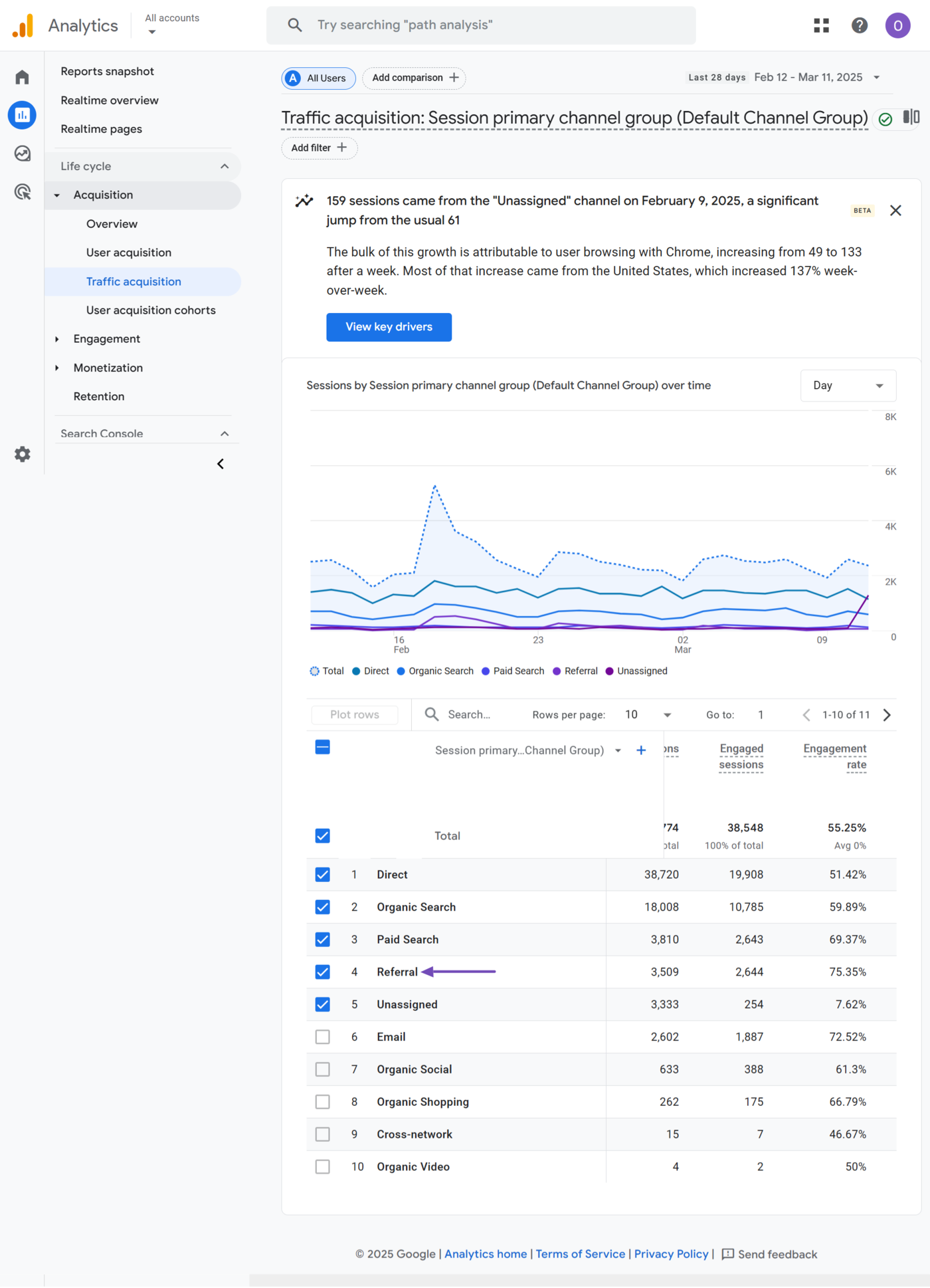
Importance of Referral Traffic
By monitoring this data, you can refine your content strategy, improve user experience, and leverage successful referral sources to drive even more traffic. Ultimately, referral traffic is a key metric for understanding your site’s reach and the impact of your external collaborations.
The referral traffic report provides valuable insights into your marketing and link building strategy. Since referral traffic comes from backlinks on other sites, such as other websites, blogs, or online directories, it allows you to track how many visitors from those sites are clicking through to your site.
This is helpful for evaluating the success of your link building, partnership, and marketing efforts. You can then optimize your link building efforts based on this. For example, you can identify high-performing referral sources and build stronger relationships with those sites.
Additionally, referral traffic often brings in highly targeted visitors who are genuinely interested in your content, which increases the likelihood of engagement and conversions.
From the SEO perspective, referral traffic can also boost your site’s authority and visibility. When reputable websites link to your content, it signals to search engines that your site is valuable and trustworthy, which could improve your rankings.
How to Increase the Referral Traffic to Your Site
Your referral traffic directly correlates with your backlinks. The more backlinks you have pointing to your site, the more referral traffic you are likely to get. That said, here are some methods to increase your referral traffic, improve your site’s authority, and attract engaged audiences who are more likely to convert.
1 Build High-Quality Backlinks From Reputable Websites
High-quality backlinks from reputable websites signal to search engines that your site is trustworthy and authoritative. These backlinks also drive direct referral traffic as users click through to your site. Just make sure to focus on earning links from authoritative sites in your niche.
2 Guest Post on Blogs in Your Industry and Niche
Guest posting allows you to reach a new audience and establish yourself as an expert. The links in the guest posts may not pass link equity and PageRank. However, they can drive referral traffic from readers interested in your content. That said, make sure to guest post on blogs that have a strong following and are relevant to your niche.
3 Participate in Online Forums and Communities
Online forums and communities like Reddit, Quora, and other niche-specific forums can help you to build relationships and establish credibility within your industry. However, ensure to provide helpful information on those sites and only share your links when necessary. You should also ensure to conform with their comment and link guidelines so that your comment is not removed.
4 Submit Your URL to Multiple Online Directories
Online directories increase your visibility and provide backlinks that drive referral traffic. So, engage in directory submissions to increase the amount of backlinks and referral traffic arriving your site. However, ensure you choose high-quality directories relevant to your niche for the best results.
5 Collaborate With Brands and Influencers in Your Niche
Collaborate with other brands or influencers to reach a wider audience. For example, you and a brand could cross-promote each other’s content. This grants you backlinks and can drive referral traffic to your site. However, make sure to collaborate with platforms with a similar target audience.
6 Create and Publish Press Releases
Press releases can generate significant referral traffic if picked up by news sites or blogs. Since these releases typically include links to your site, visitors are likely to click the links to access more information. So, you should consider press releases for your link building campaign.
7 Participate in Interviews and Podcasts
Interviews and podcasts allow you to share your expertise and establish yourself as an authority on a topic and niche. They often include links to your site, which can drive significant referral traffic. You may also mention your site’s name or URL in the podcast or interview, further encouraging visitors to check out your site.
8 Monitor Your Brand Mentions
Monitor and engage with the sites that mention your brand online. When a site mentions your brand without linking to it, reach out to them and politely request that they include a link to your site. This allows you to build relationships with the site and also increases the backlinks and referral traffic coming to your site.